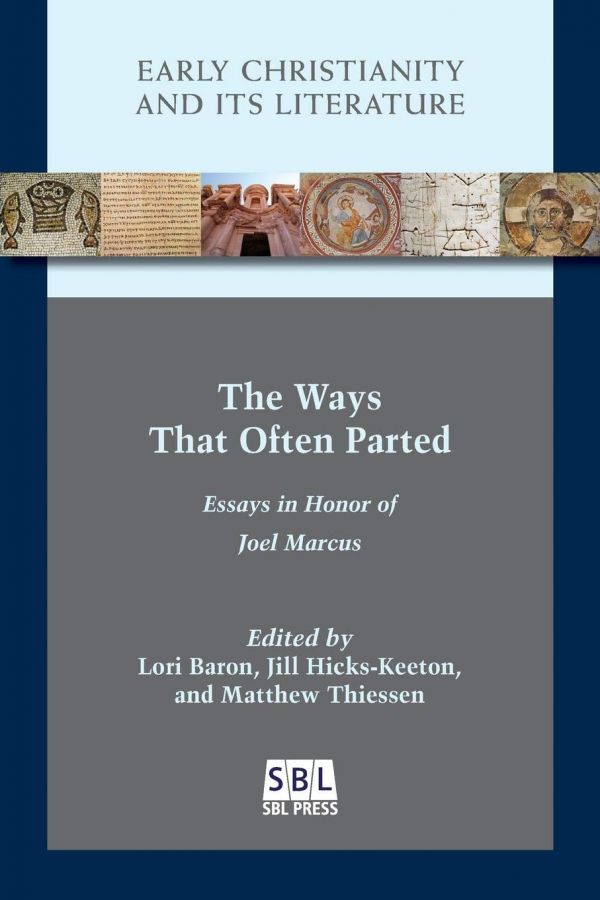Joel Marcus, Ph.D., professor of New Testament and Christian Origins at Duke Divinity School, has been honored by a volume of essays written by an internationally renowned group of scholars focusing on studies of the historical interactions and formations of Judaism and Christianity.
The volume, The Ways That Often Parted: Essays in Honor of Joel Marcus, was published by the SBL (Society of Biblical Literature) Press in October as part of The Early Christianity and Its Literature (ECL) series. The series publishes monographs, revised dissertations, and collections of essays on the history, culture, and literature of the New Testament and early Christianity.
The Festschrift challenges popular ways of understanding how Judaism and Christianity came to be separate religions in antiquity. Essays in the volume reject the belief that there was one parting at an early point in time and contest the argument that there was no parting until a very late date. Instead, the volume presents a complex account of the numerous ways partings occurred across the ancient Mediterranean spanning the first four centuries CE.
The editors of The Ways That Often Parted and the following three of its contributors received their doctorates from Duke University. The essays were edited by Lori Baron, postdoctoral fellow in the Department of Theological Studies at St. Louis University; Jill Hicks-Keeton, assistant professor of Religious Studies at the University of Oklahoma; and Matthew Thiessen, associate professor of Religious Studies at McMaster University. All three also contributed essays. Other contributors include: Susan Grove Eastman, associate research professor of New Testament at Duke Divinity; Suzanne Watts Henderson, professor of religion at Queens University of Charlotte and director of its Center for Ethics and Religion; and Timothy Wardle, associate professor of religion at Furman University.
This tribute to Marcus, a renowned New Testament scholar specializing in the relationship between ancient Judaism and early Christianity, includes case studies exploring how Jews and Christians engaged in interaction, conflict, and collaboration; examines the Gospels, Paul's letters, the book of James, as well as rabbinic and noncanonical Christian texts; and provides new evidence for historical reconstructions of how Christianity came on the world scene.
A faculty member at Duke Divinity since 2001 and a Jewish Christian, Marcus has written numerous books including a two-volume commentary on the Gospel of Mark in the Anchor Bible series and his latest one, John the Baptist in History and Theology, which was published in November by the University of South Carolina Press.
